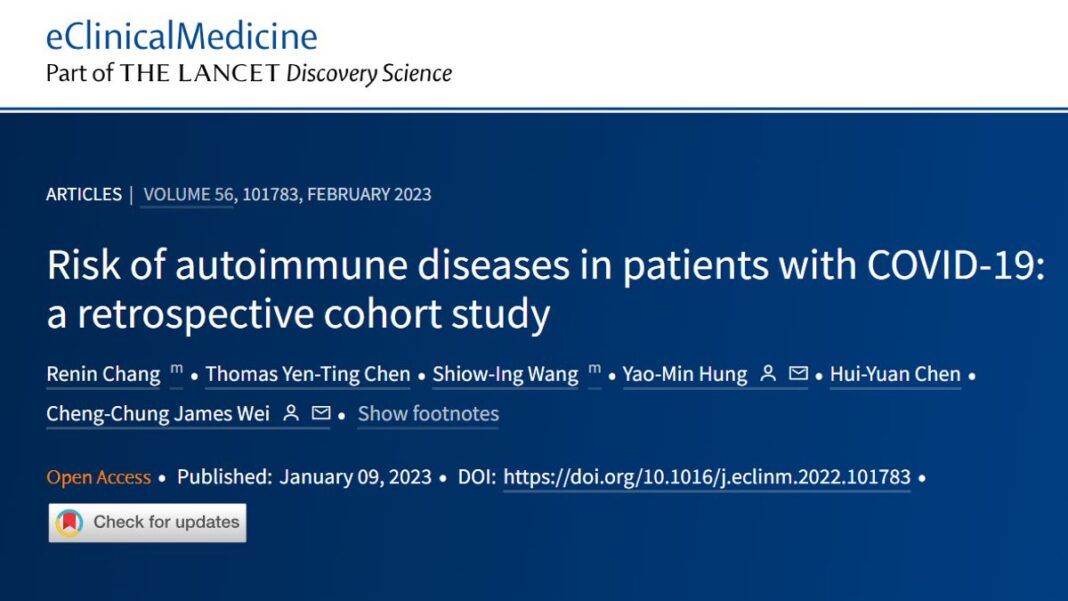The long-term chronic effects of COVID-19 cannot be ignored. Studies have shown that six months after being diagnosed with COVID-19, the risk of developing an autoimmune disease is three times that of an uninfected person. Virology experts say following six health guidelines can help reduce the incidence of long COVID.
A research team analyzed data from TriNetX, a global electronic medical records database, which included more than 3.81 million participants (880,000 confirmed and more than 2.9 million undiagnosed) who underwent PCR screening from 2020 to 2021. After tracking them for 180 days, the risk of autoimmune diseases in those diagnosed was three times that of those not infected.
Compared with the undiagnosed control group, the probability of suffering from various immune system diseases in confirmed patients was as follows:
- 2.98 times for rheumatoid arthritis
- 3.21 times for ankylosing spondylitis
- 2.99 times for systemic lupus erythematosus
- 1.96 times for vasculitis and dermatopolymyositis
- 2.58 times for systemic sclerosis
- 2.62 times for Sjögren’s syndrome
- 3.14 times for mixed connective tissue disease
- 2.32 times for Behçet’s disease
- 2.90 times for polymyalgia rheumatica
- 2.91 times for psoriasis
- 1.78 times for inflammatory bowel disease
- 2.68 times for celiac disease
- 2.68 times for Type 1 diabetes
- 1.20 times for mortality rate
The research results were published in EClinicalMedicine, a sister journal of The Lancet Discovery Science.
Dr. Wei Zhengzong, the paper’s author and vice director of the Affiliated Hospital of Chung Shan Medical University in Taiwan, said that a confirmed case of COVID-19 will activate the immune response, resulting in a cytokine storm. The structure of the virus antigen may also be similar to one’s self-antigen, causing a cross-reaction that attacks self-tissue cells and organs, inducing autoimmune diseases.
Dr. Wei said that if the diagnosed person suffers long-term joint pain, skin rash, unexplained hair loss, fever, mouth ulcers, etc., after recovery, he or she is advised to seek medical attention immediately.
By Ellen Wan







